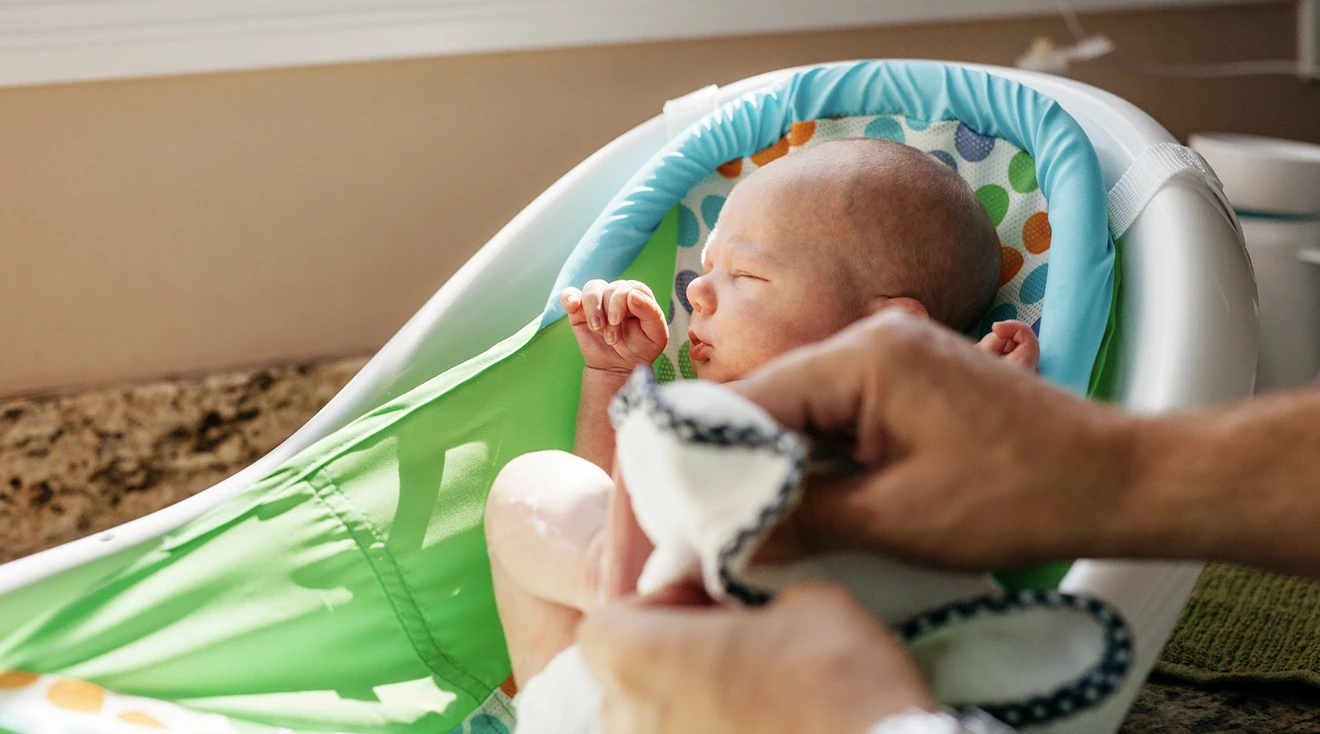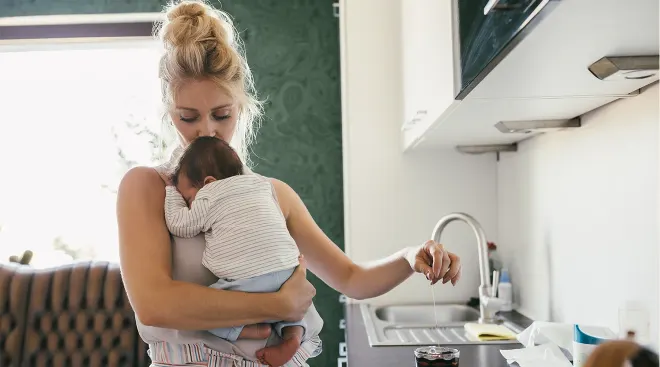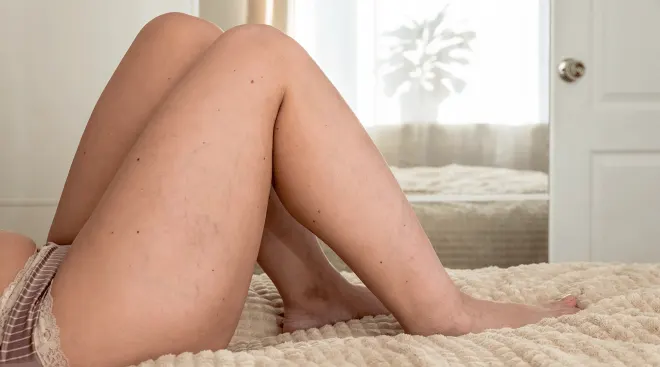How Often Should You Bathe a Newborn?
As a new parent, you might think you need to bathe baby every day, but experts say this simply isn’t the case. “I think the most important thing is to recognize that daily baths aren’t only unnecessary in infants, but they’re applying a cultural norm for no health or hygiene reason,” says Dipesh Navsaria, MD, an associate professor of pediatrics at the University of Wisconsin-Madison and a spokesperson for the American Academy of Pediatrics (AAP). In other words, you do it because you think you’re supposed to. But there’s no actual benefit; moreover, excessive bathing may actually do more damage than good. So how often should you bathe a newborn, and how can you keep them squeaky clean between soaks? Read on for expert tips.
The World Health Organization (WHO) recommends delaying baby’s first bath for 24+ hours after birth (or at least six hours if that’s not possible). Research shows that waiting to bathe baby for the first time can reduce their risk of hypothermia and hypoglycemia.
Another study found that delaying the first bath can lead to an increased likelihood of breastfeeding success. “New experiences, like baths, can be stressful for baby,” says Delmar Bauta, a postpartum doula and lactation specialist with Emerald Doulas in Durham, North Carolina. “Stress hormones can cause baby’s blood sugar to nosedive after a bath. Babies with low blood sugar can become cranky (hangry!) and too sleepy to breast- or chestfeed well.”
Moveover, you don’t want to immediately wash off the vernix caseosa (the creamy, white substance baby is covered in when they’re born). It helps protect your newborn from germs and acts as a moisturizer, explains Bauta.
Until baby’s umbilical cord stump falls off—which, according to the Mayo Clinic, usually happens within one to three weeks after birth—you should stick to sponge baths in order to keep the area dry. Getting the umbilical cord wet may delay it falling off. Plus, “The natural barrier of regular skin isn’t present in that area until the stump has fallen off, so the concern is that infection risk is higher,” says Navsaria.
As for how often you should bathe a newborn once their umbilical cord stump falls off, experts say up to three times a week is fair game. “Newborns really don’t need to be bathed that often—after all, they shouldn’t be perspiring, and they aren’t crawling, so [they] shouldn’t be getting into dirt!” says Navsaria. “Three baths a week in the first year of life may be enough.”
Your instinct might be to bathe your newborn every day. But overwashing a newborn can actually dry out their sensitive skin, says Bauta, adding that bathing baby too frequently strips away the protective lipids that keep in moisture. “Daily washing also removes the good bacteria from the skin, disrupting the immune system…If baby already has eczema, daily baths can cause it to flare up.”
Also, while incorporating a bath into baby’s bedtime routine can be calming, there are other ways to help baby wind down before sleep. “You might consider alternatives, [such as] baby massage, reading a story, or playing or singing a special song you reserve for sleepy time,” says Bauta. If you do choose a bath as part of baby’s bedtime routine, skip the soap and shampoo most days and make sure to follow up with unscented lotion or oil to trap in moisture.
As baby gets a bit older, you can experiment with bathing them more frequently, says Bauta. But there’s no hard-and-fast rule: Some babies simply like daily baths more and others don’t. Once baby becomes more mobile, starts daycare or both, it makes sense to bathe them more often: “I like to wash their hands with soap and water before meals. I’ll also wipe down crawlers’ knees and shins before naps and bedtime,” says Bauta.
Even though you shouldn’t bathe your newborn every day, there are plenty of other things you can do to keep baby clean between baths. LaPonda Kersey, a postpartum doula and breastfeeding counselor with DC Birth Doulas, recommends using the “top and tail” method, a quick cleanup of baby’s face, chin folds, hands and bottom area. “Not only to kind of freshen up, but to remove any drool or milk that may have gotten in the chubby neck folds,” she says. It also helps keep their bottom clean and free of residue from urine buildup.
Bauta recommends using a warm wet washcloth to clean up messes between baths, adding that a quick bottom soak in the sink before bed can be useful. “Just hold baby in a seated position on [the] edge of the sink and wash their bottom with soap and water,” they say.
Of course, newborn life is unpredictable and there will definitely be times you’ll need to give baby an unplanned washing between regular baths. Keep in mind that your newborn bath schedule doesn’t have to be by the book. “Catastrophes—aka blowouts—are inevitable, and it’s okay to use your own discretion,” says Kersey. An extra bath, as needed, isn’t anything to stress about.
Please note: The Bump and the materials and information it contains are not intended to, and do not constitute, medical or other health advice or diagnosis and should not be used as such. You should always consult with a qualified physician or health professional about your specific circumstances.
Plus, more from The Bump:
Delmar Bauta is a postpartum doula and lactation specialist with Emerald Doulas in Durham, North Carolina. They’re also trained as a traditional midwife, perinatal wellness counselor and community health worker.
LaPonda Kersey is a postpartum doula and breastfeeding counselor with DC Birth Doulas.
Dipesh Navsaria, MPH, MSLIS, MD, is an associate professor of pediatrics at the University of Wisconsin-Madison and a spokesperson for the AAP. He earned his medical degree from the University of Illinois College of Medicine in Chicago.
World Health Organization, Postnatal Care for Mothers and Newborns, April 2015
World Health Organization, WHO Recommendations on Newborn Health, May 2017
Journal of Global Health, Timing of first bath in term healthy newborns: A systematic review, August 2022
Breastfeeding Medicine, Delaying the Bath and In-Hospital Breastfeeding Rates, December 2013
Mayo Clinic, Umbilical cord care: Do's and don'ts for parents, February 2022
Learn how we ensure the accuracy of our content through our editorial and medical review process.
Navigate forward to interact with the calendar and select a date. Press the question mark key to get the keyboard shortcuts for changing dates.




















































